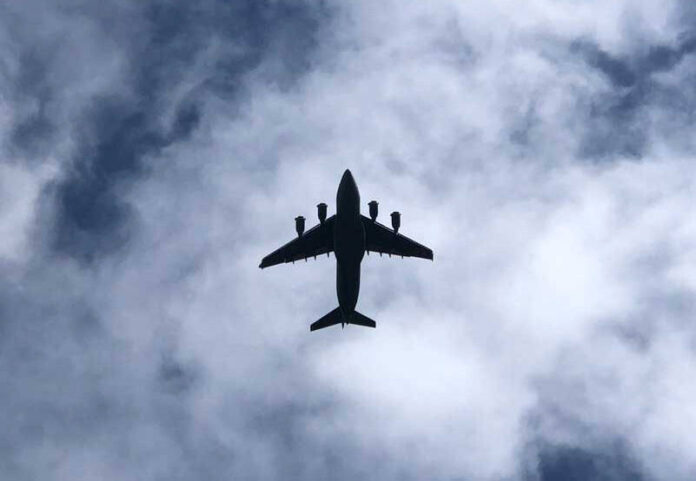By Morf Morford, Tacoma Daily Index
Travel is a priority for many of us. Most aspects of it are generally enjoyable if not necessary.
But it can be very stressful. And it’s even more stressful for those who work in the travel industry.
For a variety of reasons, air travel is like a compression of all of the difficulties and challenges of travel; we are in cramped quarters with strangers – subject to the whims of nature (as in storms, headwinds or weather disruptions), intrusive security issues, potential mechanical problems, and the occasional human difficulty from health concern to crying babies.
All in a day’s work for some
Imagine yourself in the place of those who encounter those variables on a daily basis by working there.
If you want good – even exceptional – service, treat the staff you encounter respectfully.
It’s not that difficult – or at least it shouldn’t be.
Treat others the way you’d like to be treated is a simple principle that will serve you well in every setting – but especially as you travel.
Our personal space in public areas is always a concern. In the confined spaces of a vibrating aircraft, being poked, tapped or even leaned-on is rude, intrusive and, at minimum, uncomfortable. Respect the space of those doing their best to serve you.
Pay attention
As a paying customer and guest on an aircraft full of people and on a fairly strict schedule, keep an eye on the processes going on around you.
Boarding, for example, with people finding their seats, stowing their luggage and getting settled, is not the time to make special requests of the staff.
If you need to take any medication or use the bathroom, take care of it before you enter the aircraft.
Do not push your way past the food/drink cart to get to the bathroom.
Take your meal or snack when they serve it
The flight staff is taking care of up to 200-300 people. Scheduling and distribution in an orderly way is crucial. Adapt to their schedule because they probably won’t be able to adapt to yours.
And if you have special dietary requirements, let the staff know before the meal is served – preferably long before boarding.
Volunteer to be bumped
Before boarding, if your schedule allows it, volunteer to be bumped. You just might get a free ticket or some kind of bonus or credit.
It might also be a good time to request an upgrade to a better seat.
Baggage
Yes, we all have baggage, but if yours is an odd or awkward shape or is a bit heavy for you, don’t expect – or demand – that flight attendants put it in the overhead bin for you. Do yourself, and the flight attendants a favor and check your bag – before boarding.
Don’t expect crew members to know your next connection
Ensuring that you make your connecting flight is, without question, important, but don’t expect the crew to know every detail about every flight arriving and departing from every airport.
Just seeing that in print emphasizes how ridiculous that assumption is. But it’s common anyway.
The person guiding you to your seat and taking care of your flight experience has no inside knowledge or control over any connecting flights.
And, no, they cannot hold a flight for you.
Clipping or filing finger and toenails
When it comes to clipping or filing finger and toenails, would you do it anywhere else in public?
Don’t do it on an aircraft. Or anywhere anyone else can see it.
For some reason, some of us act as if the passenger cabin is our home. It just isn’t.
Keep your arms and legs and various other body parts in your own space and keep in mind that there is essentially no privacy in an aircraft.
Stretching in the middle of the aisle
Like most people perhaps, I find it difficult to sit in one place for a long flight. I like to get up and walk or at least stretch for a bit.
On larger aircraft there is usually an open space near the bathrooms. But whatever you do, don’t do yoga or stretching exercises in the middle of the aisle.
The flight staff, after all, are working and we are in their workspace.
The aisle is what passes for a shared public community space on a moving vehicle – where people with jobs are attempting to do them under difficult – and sometimes dangerous – circumstances.
It’s a thoroughfare more than anything else.
Use your inside voice
You might be bored in your seat, but your time in flight is not the time to practice comedy routines, foreign accents, cartoon voices or yodeling.
The last time I flew, I had a boy behind me, about age 8, who would let out a high-pitched screech every few minutes – just to keep his mom awake I guess.
Say “Thank you”
In transit, and in life in general, a little appreciation goes a long way. When you exit an aircraft, take a moment to think of everything the crew did for you — from ensuring you have water and food to keeping you safe in the air, and further along on your journey — and say a simple “thank you.”
It’s not that difficult, and it will certainly make their work day go better. And probably yours as well.
In short, again, perhaps like every other area of life, if you take care of them, they will take care of you.










